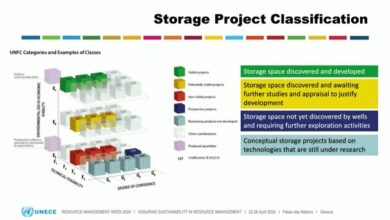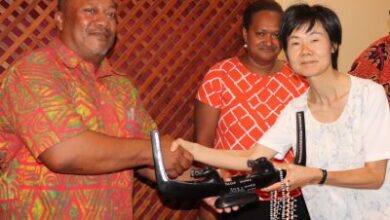Sustainable raw material management to support the European Green Deal

The current patterns of raw material consumption are unstainable and are becoming an existential threat to the planet.
The United Nations Framework Classification for Resources (UNFC) offers a solution to support a total transformation towards a sustainable resource management future. To support the objectives of Sustainable Development Goals (SDGs), and initiatives such as the European Green Deal, a comprehensive toolkit, the United Nations Resource Management System (UNRMS) is also under development.
Discussions at the recent workshop, “UNFC Europe: Ensuring sustainable raw material management to support the European Green Deal” focused on the European Union (EU)’s new growth strategy aiming to transform the region into a modern, resource-efficient and competitive economy.
The European Green Deal is the EU’s strategy for aiming net-zero greenhouse gas emission by 2050, promote the circular economy and enhance social responsiveness. Sustainable production and use of raw materials, primary and secondary, underpin the successful realization of the objectives of the new Green Deal.
“Effective management of resources can be implemented if quality data and information on their social-environmental-economic viability, technological feasibility and risks are available. Structured and harmonized information could be obtained using UNFC,” said Scott Foster, Director of UNECE’s Sustainable Energy Division, when opening the workshop.
“Europe is focusing on ten actions to access raw materials,” said Peter Henley, Head of Energy Intensive Industries and Raw Materials, DG Grow, European Commission. “This includes mapping supplies from secondary sources and wastes, investments, and developing strategic international partnerships.”
Forming a European Raw Material Alliance, developing sustainable financing criteria, and promoting research and innovation remain crucial to this approach. Developing expertise and skills in transformative technologies, deploying earth observation programmes, focusing on critical raw materials, and nurturing sustainable mining practices are other areas of priority for the European Union.
Emil Högberg, State Secretary to Sweden’s Minister for Business, Industry and Innovation, mentioned the country’s preparedness for the green transition. Key to this transition is the focus on critical raw materials, especially on ethical sourcing involving accessibility, traceability and recycling. UNFC provides a balanced view of all sustainability legs such as social, environmental and economic viability.
Zdenek Venera, President of EuroGeoSurveys, which represents 38 geological surveys with over 10,000 experts and over EUR 700 million in annual budget, remarked that the European vision is to provide the best available expertise and information to support sustainable raw material supply.
Peter van de Ven, OECD Statistics Directorate, said that the System of Environmental-Economic Accounting (SEEA), which incorporates UNFC, provides a comprehensive tool for a full accounting of the relationship between the economy and the environment.
Tom Butler, CEO of the International Council of Mining and Metals (ICMM), spoke about the challenges caused by the trust deficit that the industry is facing today. The industry is therefore committed to ensuring sustainability, especially in obtaining and keeping its “social licence to operate”.
Guaranteeing good practices on “doing no harm”, ensuring transparency, especially in environmental and social governance focused investments, looking into optimizing the benefits of digitalization and automation, and transitioning to a low-carbon economy continue to engage the industry.
The workshop also featured several case studies on the application of UNFC for sustainable raw material management in Europe.



